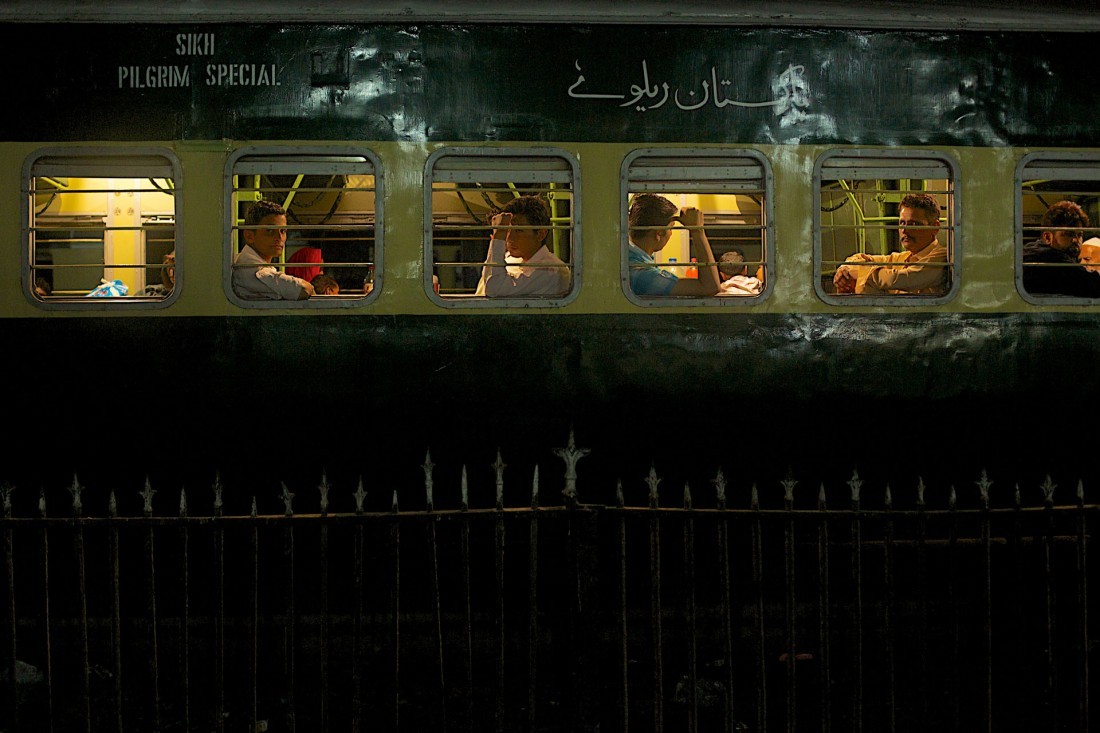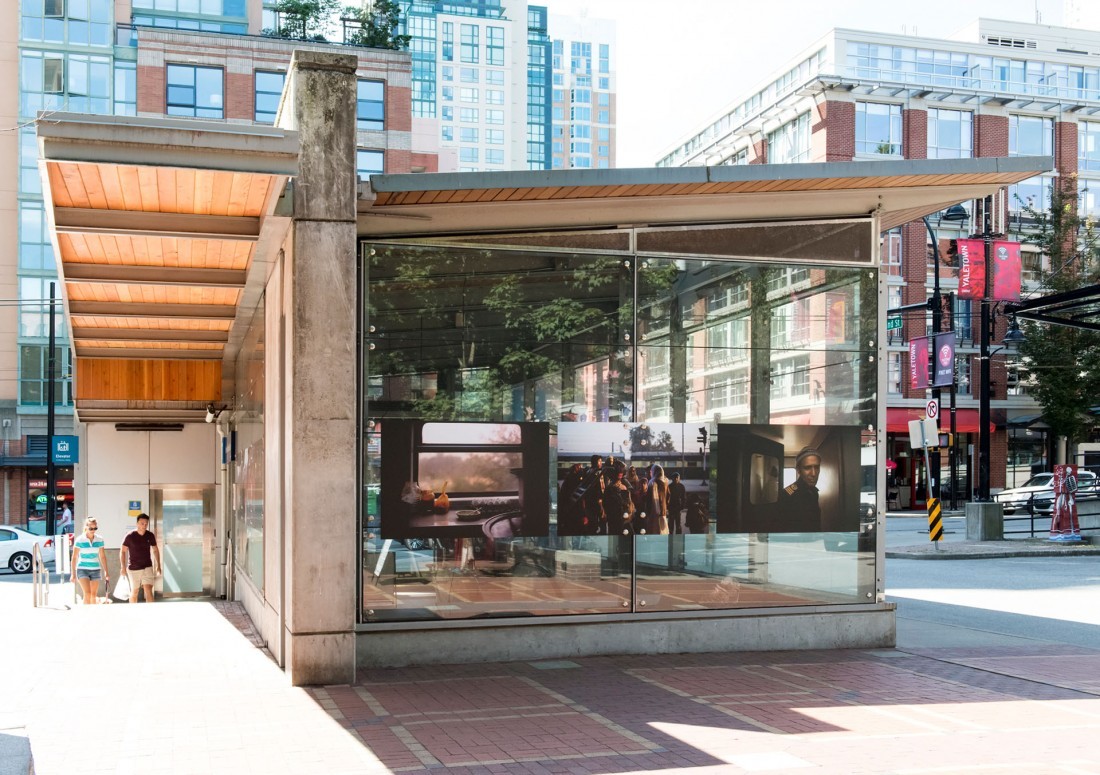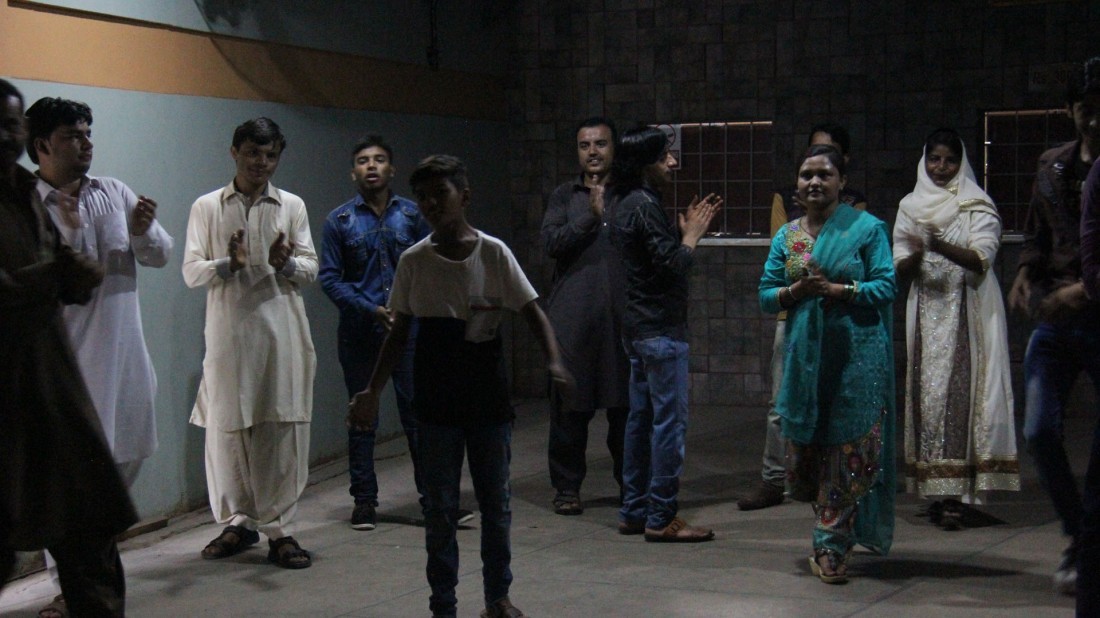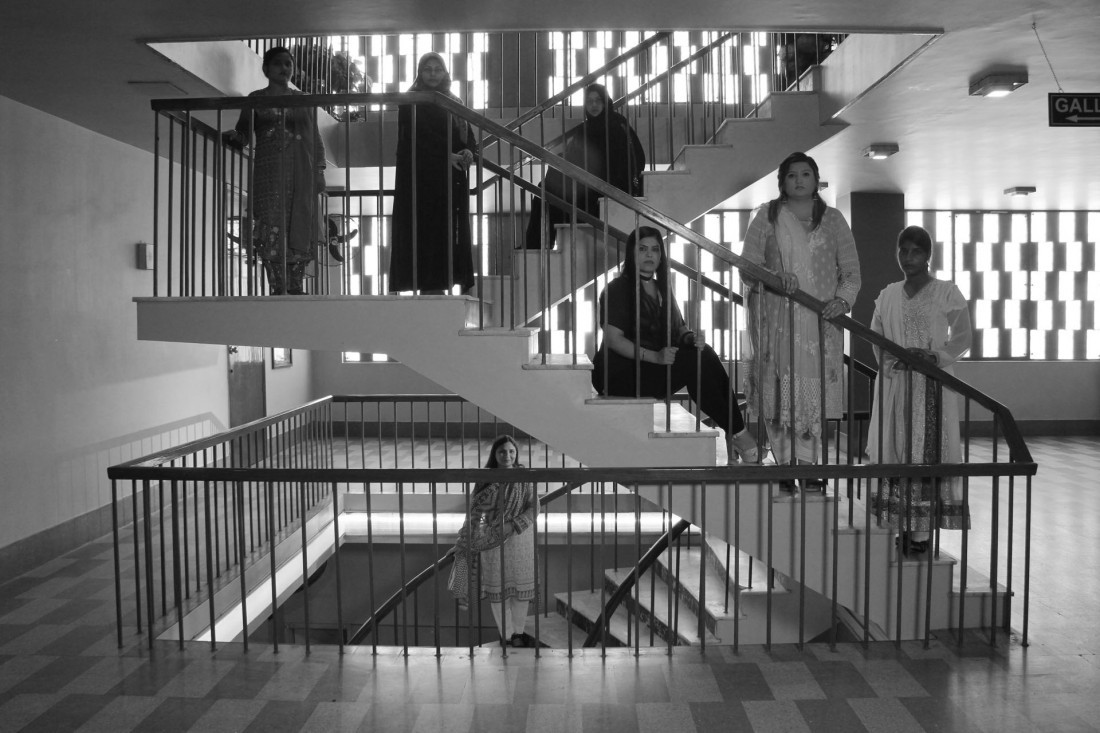“Madiha Aijaz: Memorial for the lost pages” Althea Thauberger, Pagal Pagal Pagal Pagal Filmy Duniya
One of the marked losses of the COVID- 19 crisis has been travel abroad. By “travel” I mean not merely heedless tourism and the accruing of smart phone snapshots but the hopeful reaching out towards an understanding—or perhaps only the glimmer of an understanding—of people, places and cultures far distant from our own. Another COVID-era loss was the direct experience of exhibitions of visual art, recently redressed with timed-entry and socially distanced admissions to reopened galleries and museums. How gratifying, then, to walk into Vancouver’s Contemporary Art Gallery on a late summer day to view artworks illuminating aspects of contemporary life in Karachi, Pakistan’s most populous and ethnically diverse city and the capital of its financial and economic life. Videos and inkjet prints by the late Karachi-based artist Madiha Aijaz examine, among other things, the complex cultural, political and linguistic legacy of colonialism as revealed in her city’s urban spaces. Vancouver-based Althea Thauberger’s ambitious video touches on the communal, relational and, in some ways, aspirational meanings associated with Karachi’s Capri Cinema. Both artists work in a documentary style: Aijaz’s approach is personal, observational and intimate in scale while Thauberger’s is collaborative and experimental in its creation and theatrical in its presentation.

Madiha Aijaz, A Railway Pilgrimage in Pakistan, 2014, chromogenic print, “Memorial for the lost pages.” Photos courtesy of the artist.
“Memorial for the lost pages,” co-curated by Kimberly Phillips and Zarmeene Shah, is the first Canadian showing of photographs and videos by Aijaz, who died tragically young of cardiac arrest in February 2019. Her work is characterized in the accompanying exhibition guide as being “as complex and layered as the city in which she lived, addressing issues of language and identity, longing and loss, public space and colonial legacies.” Aijaz’s small-scale colour photos include the 2016 series “Death sentence in two languages,” a study in a sexually charged everydayness: the unexpressed desire embodied in men walking together on a beach, sitting in a coffee house, playing pool. Occasionally, a chador-clad woman walks past, a dark, unfocused blur, but always, always, the men socialize with each other in Karachi’s public spaces. (Larger photographs, meditating on the current state of Pakistan’s fabled Khyber Mail railway line, wrap the glass-enclosed entrance to Yaletown-Roundhouse SkyTrain station.)

Madiha Aijaz, installation view from “Memorial for the lost pages,” 2020, Contemporary Art Gallery, off-site at Yaletown- Roundhouse Station, Vancouver. Photos: SITE Photography. Courtesy Contemporary Art Gallery, Vancouver.
Most engaging here are three short videos, shown on small screens and focused on Karachi’s historic and, in this day, little-utilized public libraries. These include the city’s Theosophical Society library, founded in 1896 and housed in a building that is now used as a Montessori school. (Mounted on a classroom wall, a hand-printed prayer in English reads, “O, God increase my knowledge. Make me a good child …”) They also include the Bedil Library, founded in 1974 and named after the 17th-century Persian poet Abdul-Qādir Bedil, whose works inspired generations of writers in both Persian and Urdu.
Through interviews with librarians and library users, whose voices narrate over long, quiet shots of library interiors, Aijaz shows us a diminishing world of literary traditions, scholarship and refuge. Glass-fronted bookcases, shelves stacked with magazines, men reading manuscripts, portraits of poets and patrons, a janitor mopping a floor, all these remarkably unremarkable images seem to be wrapped in silence as Aijaz registers the way language is indelibly bound into cultural identity. She registers, too, the shift from Urdu to English—from the language of poetic tradition and contemplation to one of commerce and ambition—in contemporary Karachi. We are given the sense of the clamorous and inexorable forces of post-colonial globalization that shape contemporary Karachi life— forces that crowd around the edges but haven’t yet invaded the libraries’ hushed interiors.
Aijaz also deploys libraries as markers of Karachi’s varied ethnic, religious and linguistic makeup and especially of the political dimension of language. Notable within her 15-minute video, These Silences Are All the Words, is her visit to the Sayad Hashmi reference library, founded in 2003 by the late Baluchi scholar and poet Saba Dashtiyari. Here, the allusion is to the literary heritage of the people of Baluchistan, one of Pakistan’s restive ethnic minorities. By extension, we are led to consider another of colonialism’s legacies, the culturally oblivious assignment of national borders. Watching the video, we become aware of a connection between the library and an assertion of Baluchi nationhood. One of the unseen people interviewed here speaks of the suppression of Baluchi language and literature, of government surveillance of the library’s users and premises and—most alarming—of Dashtiyari’s 2011 assassination. For a silent and sombre moment, Aijaz’s camera fixes on a bloodstained shirt on display in the library. The image speaks to vast and tragic histories of which we Westerners know almost nothing.
An entirely different history, that of the Capri movie theatre, located in Karachi’s central Saddar district, is spotlighted in Thauberger’s 2017 video, Pagal Pagal Pagal Pagal Filmy Duniya. (The title translates in English as Mad Mad Mad Mad Filmy World, an apparent riff on Stanley Kramer’s 1963 slapstick comedy It’s a Mad, Mad, Mad, Mad World. Any likeness between the two works, however, seems to begin and end in their titles.) Architect-designed on modernist principles and completed in 1968, the Capri Cinema represents a significant cultural moment in the city’s history, set in the context, too, of important demographic shifts in the Saddar district following British withdrawal. Today, the Capri is, we’re told, “the last remaining historic single-screen cinema house for general audiences” in Karachi. As gradually revealed in Thauberger’s work, it was one of the few cinemas that survived the censorship and Islamization that occurred in Pakistan between 1977 and 1988. It also survived a fire in 2012, set by a mob, was rebuilt and restored in a matter of months, and remarkably has kept its ticket prices low, guaranteeing wide accessibility to the poor and working-class people of the area. The place speaks to an idea of community and it is that multi-voiced idea, as much as the physical space of the cinema fleetingly inhabited, that compels Thauberger’s interest—and ours.

Althea Thauberger, Pagal Pagal Pagal Pagal Filmy Duniya, 2017, single channel video projection. Courtesy of the artist.
Still, as presented at the Contemporary Art Gallery (CAG), it’s not immediately clear why this Canadian artist of European heritage selected a Pakistani cinema as the site and subject of a 30-minute, single- channel, community-engaged video. (Four different Canadian galleries, along with the Karachi Biennale, are named as supporting its production.) Again, the work, in Urdu with English subtitles, is described as being collaborative, shaped by the community members whom Thauberger engages here. In a 2017 interview with Karachi journalist Raba Mushtaq, the artist speaks of the necessity for her of being aware of and sensitive to cultural differences. Still, anxieties about the privileged, post-colonial access Westerners are granted in developing countries niggle around the periphery of the enterprise.
Built to the specifications of its owner, Chaudry Abdul Razaque, the Capri Cinema possesses a curved screen with zero-angle projection, technical conditions that Thauberger reproduces in her video’s theatre-like installation at the CAG. The work was shot entirely in the Capri—in its entrance hall, gleaming concourse, open stairways, projection booth and double-height auditorium—and enacted collaboratively by some 100 of its customers and staff. These “participant-actors” seem to comfortably span generations and genders; they include schoolboys in navy blazers, schoolgirls in white scarves and tunics, middle-aged women and men in the traditional shalwar kameez, grizzled workers in orange uniforms, young guys in Westernized shirts and blue jeans, a couple of women cloaked in black chadors. Sometimes they interact with each other; sometimes they seem to be segregated by gender. In their various configurations, they speak to and over each other, pose questions, argue, recite poetry, play a dholak, dance, laugh, weep, whoop, perform acting exercises and enact oblique and self-conscious narratives. Sometimes they sit, alert and attentive, in the darkened auditorium, watching themselves on the screen; at other times, they walk about heedlessly, drifting out of focus, insubstantial as ghosts. A poem is recited: “My dear city Karachi.… Everyone’s mother is Karachi….” A song of blessing is sung: “May your children live long, may they prosper always.” A communal impulse is lauded: “People in the cinema should sit together in love and affection.”

Althea Thauberger, Pagal Pagal Pagal Pagal Filmy Duniya, 2017, single channel video projection. Courtesy of the artist.
Pagal Pagal’s interpreters, such as the immensely perceptive and articulate Phillips, speak about the sociality of cinema, the relational and eventful nature of space, the ways in which the heterogeneous community gathered together here, however briefly, is a microcosm of the city of Karachi. These readings all make sense conceptually, although they don’t touch on what is, for me, the emotional heart of Thauberger’s video, the sense of the cinema as a place in which we gather together to dream. Most touching is a sequence in which a middle-aged woman, her husband seated beside her, speaks to the camera about being transported out of herself when she sits in the darkness of a movie theatre. Someone else remarks that we go to the cinema looking for relief from—and possibly insights into— the harsh realities of daily life. Here, wonderfully, Thauberger’s collaborators become philosophers, posing metaphysical questions. “Who are we?” “What are we?” “What is our existence?” The cinema, it seems, might provide some answers— or at least metaphors. “Life is a film,” someone says with simple conviction, “and a film is in the Capri.” ❚
“Madiha Aijaz: Memorial for the lost pages” and Althea Thauberger, Pagal Pagal Pagal Pagal Filmy Duniya are at the Contemporary Art Gallery, Vancouver, until January 3, 2021.
Robin Laurence is a Vancouver-based writer, curator and contributing editor to Border Crossings.

